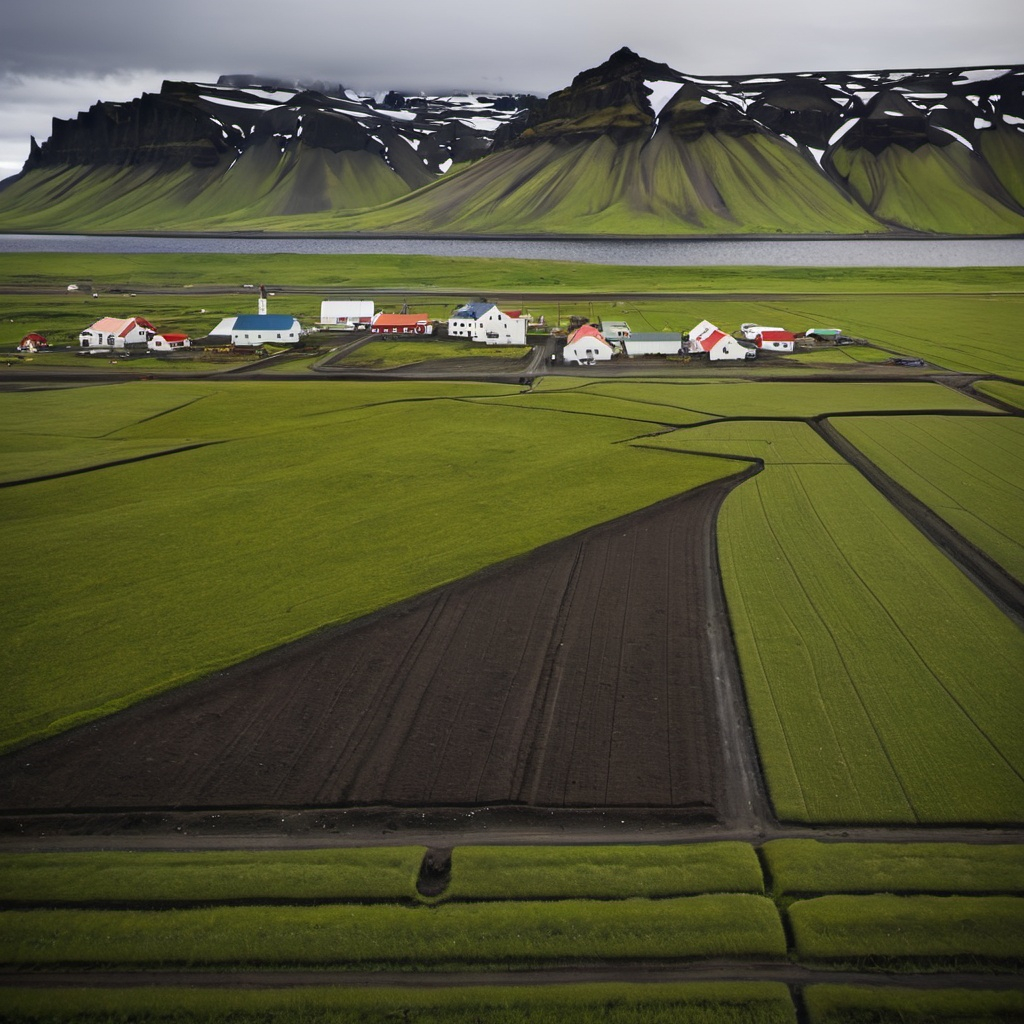
Overview of Icelandic Agriculture
Agriculture in Iceland is unique due to the country’s harsh climate and volcanic landscape. Despite these challenges, farming plays a significant role in Iceland’s economy and culture. The Icelandic agricultural sector focuses primarily on livestock farming, with a growing emphasis on sustainable practices.
Key Agricultural Products
The primary agricultural products in Iceland include:
- Livestock: Sheep farming is prevalent, with Icelandic sheep known for their high-quality wool and meat. Cattle farming is also important, mainly for dairy production.
- Dairy Products: Iceland is known for its dairy products, including skyr, a traditional Icelandic yogurt-like product.
- Vegetables and Fruits: Due to the short growing season, Icelandic farmers use greenhouses to cultivate vegetables and some fruits, such as tomatoes, cucumbers, and berries.
- Forage Crops: Farmers grow forage crops like hay to feed livestock during the winter months.
Farming Practices and Challenges
Farming in Iceland is influenced by the country’s extreme weather conditions and volcanic soil. Key practices and challenges include:
- Greenhouse Farming: To overcome the short growing season and cold temperatures, many Icelandic farmers use geothermal heat to power greenhouses for growing vegetables and herbs.
- Soil Management: The volcanic soil in Iceland is rich in minerals but can be challenging for farming. Proper soil management and conservation practices are essential.
- Climate Impact: The unpredictable climate, including frequent changes in weather, affects crop yields and livestock health.
Sustainable Agriculture Initiatives
Iceland is committed to sustainability in its agricultural practices. Some key initiatives include:
- Geothermal Energy: The use of geothermal energy for greenhouse heating and other agricultural needs reduces reliance on fossil fuels and supports environmental sustainability.
- Organic Farming: There is a growing interest in organic farming methods, which aim to minimize environmental impact and promote animal welfare.
- Conservation Efforts: Efforts are made to protect natural landscapes and biodiversity through responsible farming practices and land management.
Government Support and Policies
The Icelandic government supports agriculture through various policies and programs:
- Subsidies and Grants: Financial support is provided to farmers to help with the costs of equipment, infrastructure, and sustainability projects.
- Research and Development: Investment in agricultural research and development helps improve farming techniques and address challenges specific to Icelandic conditions.
- Training and Education: Programs are available to educate farmers on best practices, new technologies, and sustainable methods.
Future Outlook for Icelandic Agriculture
The future of agriculture in Iceland involves adapting to changing conditions and advancing technology:
- Technological Advancements: Continued development of agricultural technology and techniques to enhance productivity and sustainability.
- Climate Adaptation: Strategies to adapt to climate change impacts, including more resilient crop varieties and improved livestock management practices.
- Local Food Production: Increased focus on local food production to reduce dependence on imports and support food security.